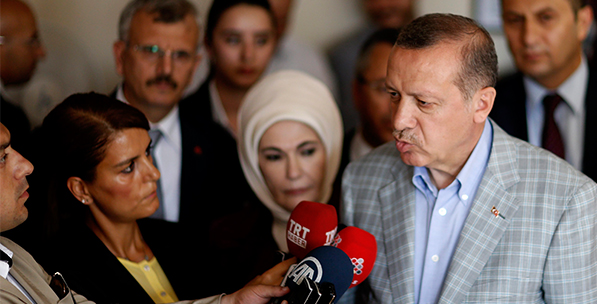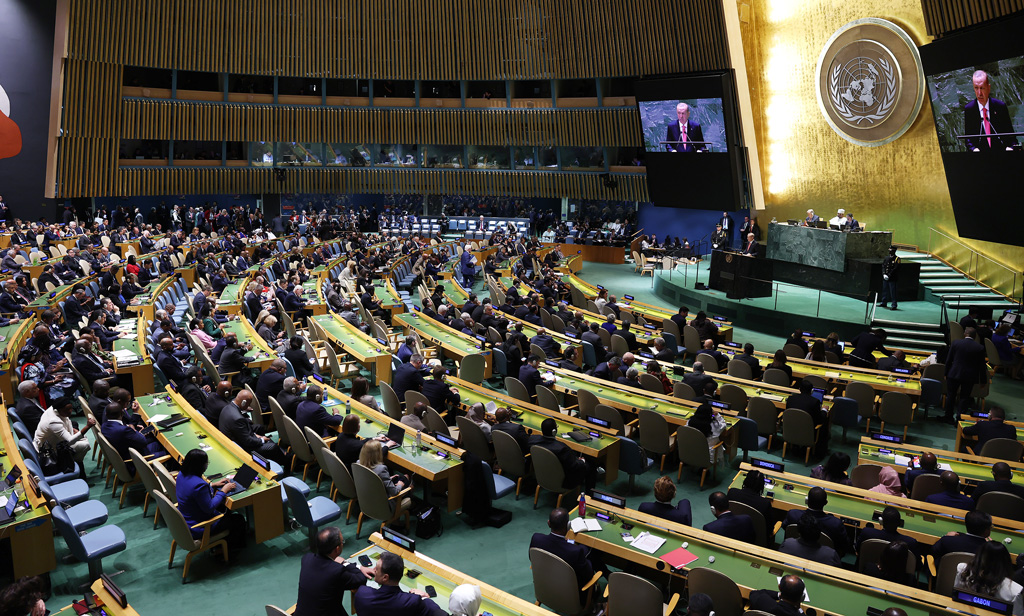In democratic regimes, every election marks a process of renewal and a fresh start. For Turkey, which experienced a period of transformation over the past twelve years, the ballot box represents an even more significant institution. The presidential race on August 10, 2014 presented President-elect Recep Tayyip Erdoğan with an opportunity to complete his political mission and established once again that Erdoğan was the leader to construct the New Turkey. It would appear that the next decade will mark the height of the former Prime Minister's influence over the country's political landscape.
It goes without saying that Erdoğan's historic position as the first popularly-elected President of Turkey, and the democratic legitimacy this role entails, will have an overall positive influence on his standing. Of course, the outcome of the 2015 parliamentary elections will also determine the limits of the President-elect's ability and capacity to complete his mission as a founding leader. Meanwhile, it remains to be seen whether or not the new Constitution will entail regime change and a transition into presidential or semi-presidential rule.
The points that Erdoğan emphasized during his victory speech on Sunday evening provide insights into the President-elect's self-proclaimed mission: "A new social consensus to highlight our common values as opposed to differences, and to build a new future."
During the same address, Erdoğan stated that "Çankaya [the presidential palace] has come under the complete control of the people and thus seized to be an instrument of the guardianship regime" to advocate a notion of democracy with an active, as opposed to ceremonial, president. The President-elect also noted that "the nation will have its say and make decisions" and indicated that "the state and the nation face the same direction" to advertise his political mission.
To be sure, Erdoğan remains fully aware of his exceptional role in the Republic's political history and, perhaps more important, seeks to exploit his position to usher in an era of major restoration and construction – a sign whereof has been his emphasis on re-imagining the nation. This re-imagination of the nation connotes a sense of identity that celebrates ethnic, religious and sectarian diversity whilst inviting various groups to join together. Erdoğan's speech suggests that he desires to promote his notion of citizenship in the New Turkey. However, winning the presidential race also provided him with the legitimacy and opportunity to fully implement reforms for the Kurds and the Alevi community.
The politics of anti-Erdoğanism, which the opposition parties have consumed as part of a futile attempt to discredit the administration, hardly represents an obstacle before Erdoğan's mission. If anything, the opposition's over-reliance on this rhetoric ensures that Erdoğan's political paradigm and strategy provide enough ammunition to defeat his rivals. Obviously, giving up on this type of politics represents a serious problem for the opposition.
At this time, the single greatest challenge for all political parties with the exception of the AK Party remains their inability to catch up with the dynamic nature of Erdoğan's political style. Thus far, they have been unable to construct an alternative political mission to counter Erdoğan's claims. Furthermore, the President-elect has traditionally been able to incorporate the opposition's arguments into his own rhetoric. Turning the tables on presidential contenders Ekmeleddin İhsanoğlu and Selahattin Demirtaş to voice the need for reconciliation, he has both empowered himself as the nation's leader and paved the way for a more active presidency by citing the need for reform. Erdoğan thus capitalized on his political skills to present himself as a leader who simultaneously represents stability and change.
On one hand, Erdoğan's emotional connection with the AK Party base consolidates his position as the leader of a political movement. On the other, his ability to shape









